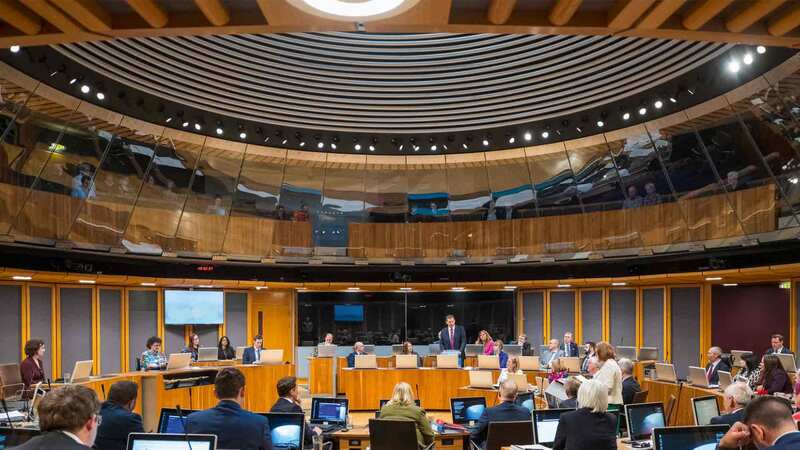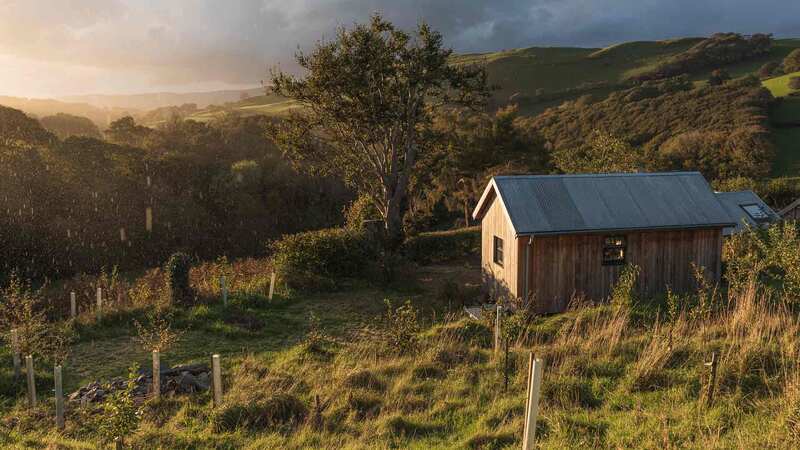You are viewing your 1 free article this month. Login to read more articles.
Welsh presses debate merits of translation as number of native speakers swells
Publishers in Wales are keen to up their Welsh-language output to cater to the growing number of Welsh speakers in the country and to help reinvigorate and support the Welsh literary scene. There are now close to 900,000 Welsh speakers in Wales, up from 726,600 in 2008, driven by the government’s plans to increase the number of Welsh speakers to a million by 2050. Sales of Welsh-language books are following this trajectory, with volume sales growing to 326,423 units between April 2018 and March 2019, up 3.3% year on year according to the Welsh Books Council.
Publishers including Y Lolfa, Honno and Rily Publications believe the market is growing for Welsh-language books and also suggest that the translation of Welsh into English will serve as a “gateway” to international recognition.“The use of the Welsh language is increasing and there is demand for resources for language learners and more school books in Welsh,” says Lynda Tunnicliffe, director at children’s publisher Rily. “In the south [Rily is based in Caerphilly], there are exciting opportunities for expansion and a growing feeling of people wanting to learn to speak Welsh as more children come home from school saying Welsh words and phrases.”
One book in high demand is Y Lolfa’s Teach Your Dog Welsh, which has sold 4,054 copies through the Welsh Books Council’s Distribution Centre and is the bestselling English language title of past 12 months. Y Lolfa editor Lefi Gruffudd says the book was inspired by the author Anne Cakebread’s new dog (both pictured), which only responded to Welsh commands. “Anne realised that she was overcoming her nerves about speaking Welsh aloud by talking to the dog, and her Welsh was improving as a result—this gave her the idea of creating a book to help other would-be learners while also using her skills as an illustrator,” says Gruffudd.
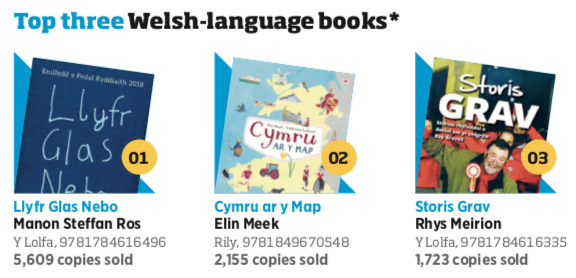
Crossing borders
Meanwhile, Caroline Oakley, editor at Welsh women’s writing press Honno, says the biggest opportunity in the market is the translation of Welsh titles into English, which she says will “open up gateways to greater knowledge of, and appreciation of, the writing of Wales and to translation into many international languages”. She adds: “Iceland has managed to get people reading its literature through the gateway of crime fiction on the page and on screen, despite it being not at all widely spoken. We should be able to do the same for Welsh.”
While translating from Welsh to English is relatively straightforward, there is “heated debate” in the Welsh-language publishing community about translating the other way, with some arguing that publishers should focus on original writing in Welsh, says Tunnicliffe. Rily, which publishes mainly Welsh language and bilingual Welsh and English books at an average of 50 titles per annum, has the view that it “should publish a bit of everything”. Currently, the Welsh Children’s Book of the Month (a campaign run by the WBC) is an adaptation, by Dr Ifan Morgan Jones, of Cressida Cowell’s The Wizards of Once (the Welsh title is Yr Hudlath a’r Haearn).
“Ifan has been incredibly creative with the character names and place names drawing on inspiration from our Welsh myths and folklore. It is a translation masterpiece and something we are extremely proud of,” says Tunnicliffe. “We believe that there is a huge demand for high-quality Welsh-language books and, especially in the children’s market, there is scope for both adaptations—when they are done well—as well as original works and Rily is keen to publish titles across all genres.”
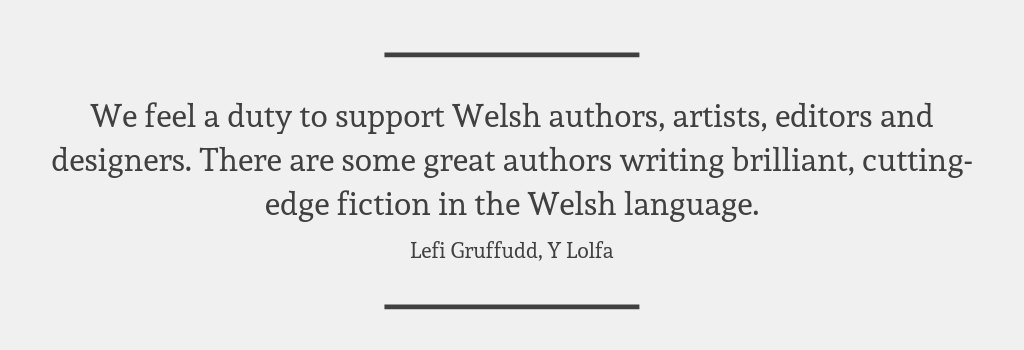
In contrast, Y Lolfa, which publishes around 60 new titles in Welsh and 25 in English every year, only publishes original books in Welsh. “We feel a duty to support Welsh authors, artists, editors and designers, and print and bind all our publications ourselves,” says Gruffudd. “There are some great authors writing brilliant, cutting-edge fiction in the Welsh language.”
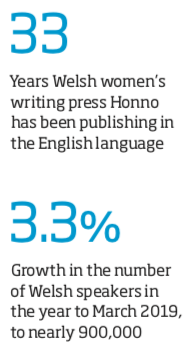
Honno’s main aim when it was set up in 1986 was to publish Welsh women’s writing in English as it was felt that it was less catered for by other publishing houses. At present, it publishes a classic Welsh-language title once every two years, and will begin publishing an original Welsh language title once a year, with the first to appear in 2020. The press also published eight to 10 titles in English annually.
Oakley says: “We would like to do more—and have plans for several new titles, including the publication of Caryl Lewis’ Y Gemydd/The Jeweller in September this year. We would very much like to get more work read more widely internationally, and firmly believe that the publication of Welsh-language writing in English will act as a gateway to further international language translations in Europe and further afield.” However, there are problems with translation. Oakley says: “There are translators able to do the work, but not so many of them. A lot of Welsh native speakers are a lot less confident about the written form of the language, and a lot of native English speakers are not sufficiently proficient in Welsh.”
The threat of Brexit is a cloud on the horizon, with publishers concerned about the availability of funding and general business uncertainty. “A lot of the funding which is accessed for publishing works in translation comes from the EU; if we did crash out, the bulk of that would be lost, which would likely mean that while commercial or genre fiction would continue to find a market internationally, it might be much harder to cost more adventurous and literary fiction in translation”, says Oakley. “Subsidy takes out some of the financial risk of publishing translated work, particularly for small independent publishing houses with shallower pockets.”
Powering Welsh-language books
Welsh Books Council
The Welsh Books Council is actively seeking to increase the number of translations of children’s and YA titles from Europe and further afield into Welsh, following a report published which encouraged a greater number of adaptations from languages other than English into Welsh. The Welsh Books Council is currently in receipt of funding from the British Council, and will work with Mercator International—which includes the literary initiatives Wales Literature Exchange and Literature Across Frontiers—to accomplish this.
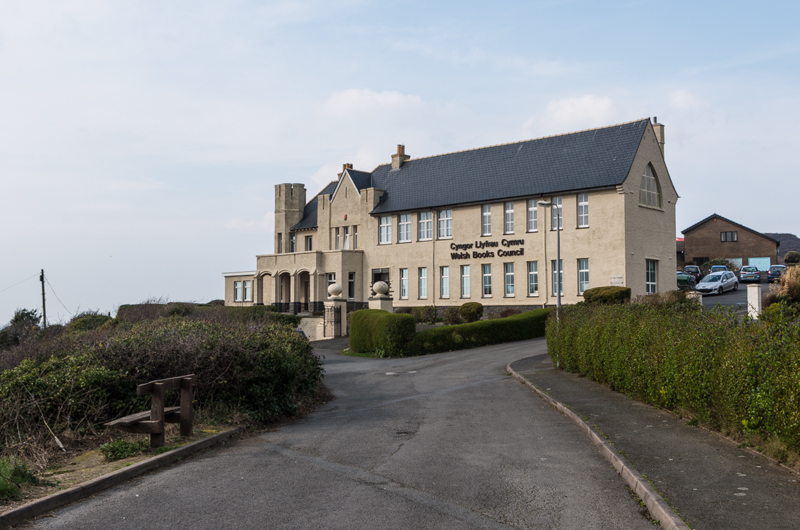
The Welsh Books Council near to Aberystwyth (credit: Ian Capper)
The WBC also works in partnership with The Reading Agency on bringing the Reading Well’s “books on prescription” scheme to Wales, and in the medium of Welsh. The books offer help and guidance to those dealing with mental health issues, and conditions such as dementia. It is also hoped that the wider availability of Welsh-language adaptations of self-help books will inspire a new generation of original writing on mental health in Welsh.
Literature Across Frontiers
Literature Across Frontiers (LAF), the Wales-based European Platform for Literary Exchange, Translation & Policy Debate, aims to develop intercultural dialogue through literature and translation, and highlight lesser-translated literatures. LAF was founded in 2001 with support from the culture programme of the European Union, and has since worked in partnership with organisations and individuals across Europe and beyond to foster literary diversity and create opportunities for new connections, collaborations and projects. It conducts research, contributes to strategic policy debates, provides online resources and information on the international literary sector, and leads international projects in Europe, India, China and the Arab world.
Wales Literature Exchange
Wales Literature Exchange, supported by the Arts Council of Wales, is the translation junction connecting writers, translators, publishers and other specialists in literary translation in Wales and in other countries. Based in Aberystwyth and working closely with LAF, Wales Literature Exchange is committed to literary translation and multilingualism. It is a small, agile organisation: an agency facilitating the sale of translation rights, a translation grant fund for publishers, a workshop bringing together writers and translators, a library of translations, and a curator of translation events.
This piece is part of The Bookseller's country focus on Wales. For more in the series, click here.











